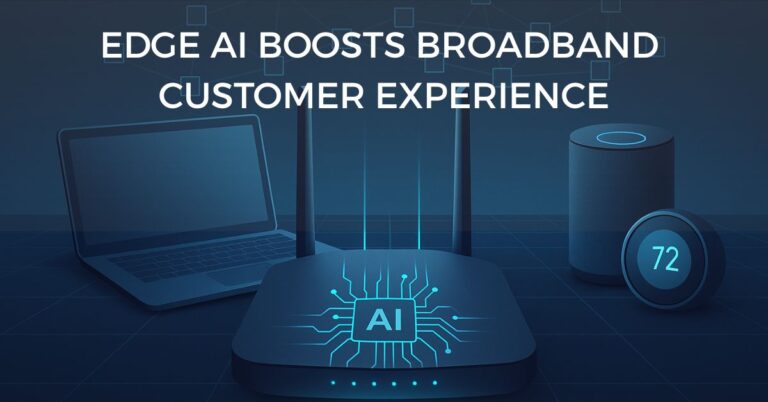- Tech News & Insight
- June 19, 2025
- Hema Kadia
Edge AI is reshaping broadband customer experience by powering smart routers, proactive troubleshooting, conversational AI, and personalized Wi-Fi management. Learn how leading ISPs like Comcast and Charter use edge computing to boost reliability, security, and customer satisfaction.




























